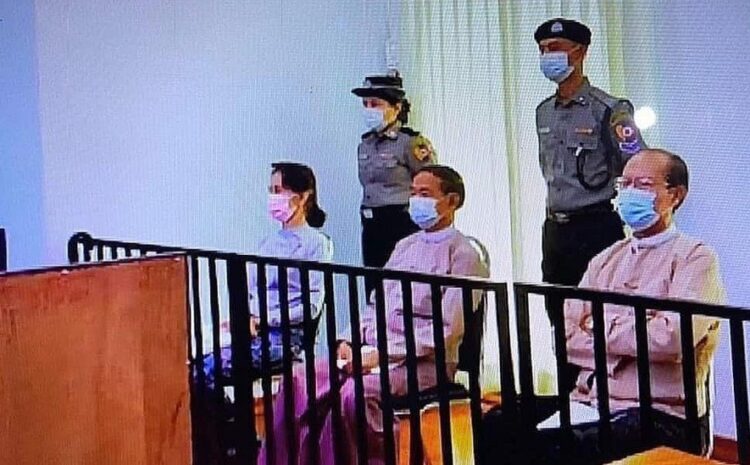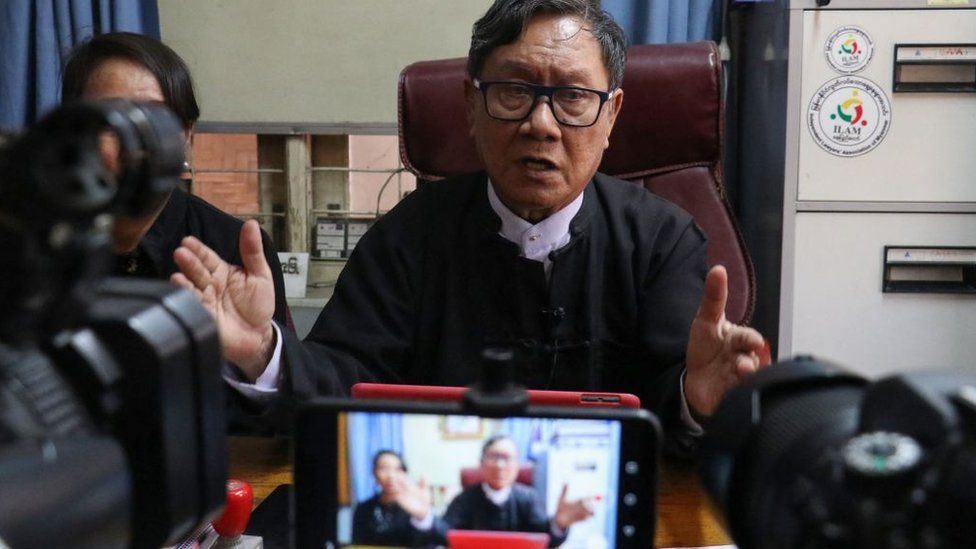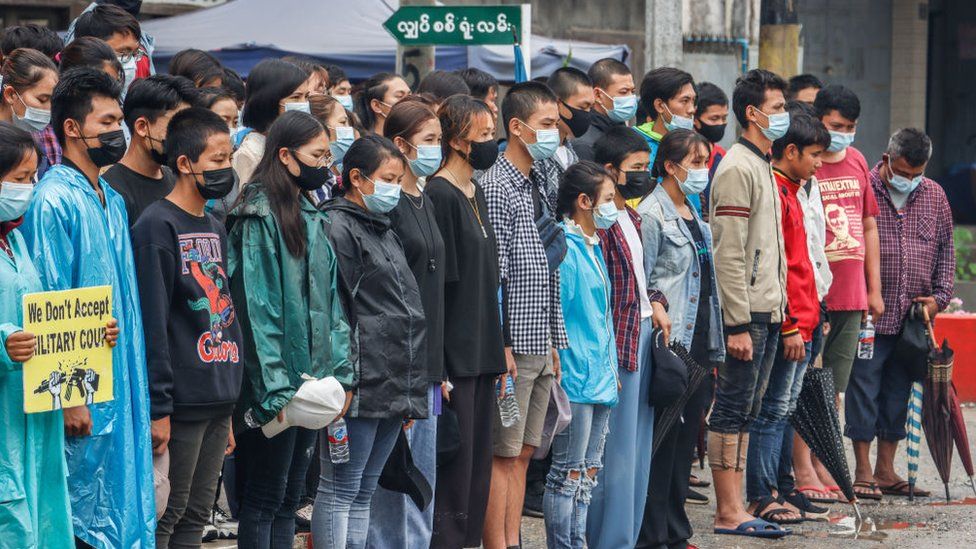
IMAGE COPYRIGHT MYANMAR STATE TV image caption Aung San Suu Kyi appeared in a makeshift courtroom with two other former leaders
The hearing, in the capital Naypyidaw, was immediately adjourned. The former leader faces several charges including violating a state secrets law.
Before the hearing, Ms Suu Kyi was allowed to meet her lawyers in person for the first time.
She has been held under house arrest for the 16 weeks since she was deposed.
 IMAGE COPYRIGHT GOOGLE
IMAGE COPYRIGHT GOOGLEMyanmar’s military has accused Ms Suu Kyi’s party, the National League for Democracy, of fraud in the general election it won last November.
Independent election monitors say the election was largely free and fair, and the charges against Ms Suu Kyi have been widely criticised as politically motivated.
Myanmar’s military has brutally cracked down on pro-democracy protesters since the February coup, killing more than 800 people and detaining more than 4,000, according to the monitoring group Assistance Association for Political Prisoners (AAPP).
 IMAGE COPYRIGHT GETTY IMAGES
IMAGE COPYRIGHT GETTY IMAGESThe six charges against Ms Suu Kyi, 75, also include illegally importing handheld radios and breaching coronavirus rules. She was allowed 30 minutes with her lawyers on Monday before the hearing was adjourned.
Ms Suu Kyi “wished people good health”, her lawyers said. She also made a reference to threats by the military to dissolve her National League for Democracy (NLD) party.
“Our party grew out of the people so it will exist as long as people support it”, she said, according to one of her lawyers, Khin Maung Zaw.![]()

Myanmar in profile
- Myanmar, also known as Burma, became independent from Britain in 1948. For much of its modern history it has been under military rule
- Restrictions began loosening from 2010 onwards, leading to free elections in 2015 and the installation of a government led by veteran opposition leader Aung San Suu Kyi the following year
- In 2017, Myanmar’s army responded to attacks on police by Rohingya militants with a deadly crackdown, driving more than half a million Rohingya Muslims across the border into Bangladesh in what the UN later called a “textbook example of ethnic cleansing”
